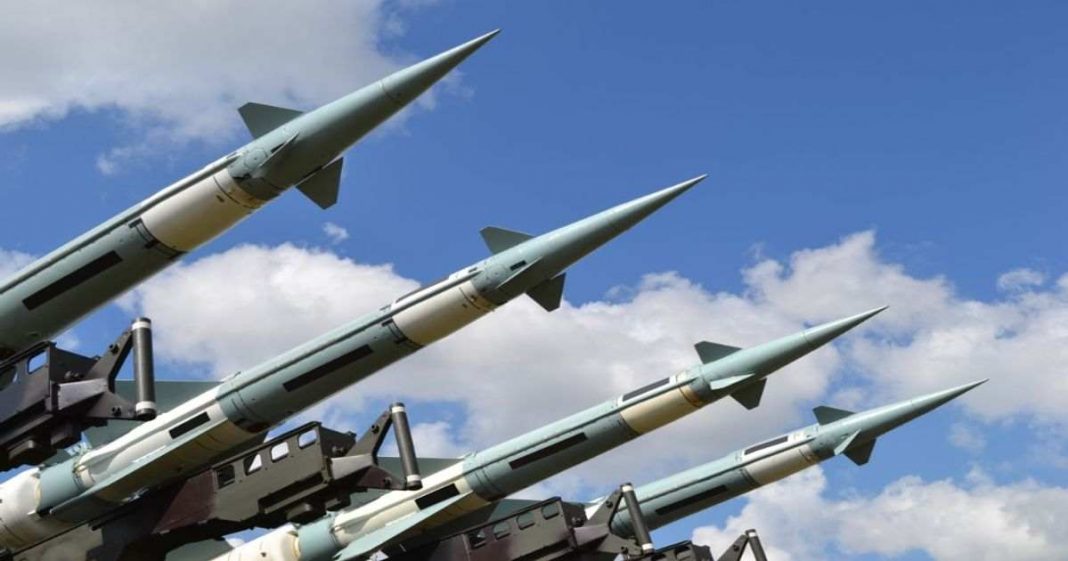The Russia-Ukraine conflict has given rise to a debate on whether or not Ukraine could have avoided succumbing to the Russian onslaught if it had retained the nuclear arsenal handed down after the breakup of the Soviet Union. Those favoring the importance of nuclear deterrence reinforce their point by maintaining that Pakistan would have faced a similar humiliation and further disintegration had it not achieved the nuclear capability after the 71 war.
After the collapse of the Soviet Union, large nuclear arsenals were inherited by Ukraine, Belarus, and Kazakhstan. Ukraine alone became heir to the world’s third-largest stockpile of nuclear weapons. In 1994, these former soviet republics gave up their nuclear arsenals under the so-called Budapest Memorandum. The memorandum included financial compensation and security assurances, or use of force against the territorial integrity or political independence of these republics. The memorandum was originally signed by three nuclear powers: the Russian Federation, the United Kingdom, and the United States. China and France gave somewhat weaker individual assurances in separate documents.
Read more: Russia on high nuclear alert as Ukraine resists invasion
Looking at the Ukraine-Russia crises
Whereas nuclear weapons were deployed on their territories, the three republics had physical but no operational control. Russia controlled the codes needed to operate the nuclear weapons, through electronic Permissive Action Links and the Russian command and control system. Even if they had operational control, would nuclear deterrence alone guarantee their national security, specifically the national security and integrity of Ukraine?
The Soviet Union possessed, after the United States, the world’s second-largest arsenal of nuclear weapons. However, the nuclear stockpile could not prevent it from disintegration.It was because the Soviet Union simply could not provide necessities of life to its people. There were chronic food shortages and people had to wait in long queues even to buy items like toothbrushes and shoes.
In August 1991, there was a coup against Michael Gorbachev. A comical coup in which the Soviet tanks surrounded the parliament of the Soviet Federated Socialist Republic of Russia (SFSR). Yes, the same SFSR that was, at the time, ruled by Boris Yeltsin. During the coup, while general secretary Gorbachev was under house arrest in his dacha on the Black Sea, Boris Yeltsin was holed up inside the White House, the Russian parliament, directing a counter-coup against the Red Army. And all this was being shown to the world on CNN. The curtain fell with the Soviet tanks withdrawing meekly to their garrison. It was the first time in their history when the Soviet tanks had withdrawn without quelling an open rebellion. What was the cause of such happenings?
During the last years of the Soviet occupation of Afghanistan, a significant segment of the Russian intelligentsia had started considering the Central Asian republics as a drain on the Soviet Union. It needs a separate discussion to highlight how the Slavic races had dominated the Bolshevik movement, relegating non-Slavs, particularly the Turkic races of Central Asia, to a secondary role.
Read more: Iran nuclear deal means bloodbath in Middle East: Israeli PM
In the late 1980s, the period when the fighting in Afghanistan was at its peak, the inhabitants of the Soviet Union, Slavs and non-Slavs alike, were getting disgruntled from their government’s misadventure in Afghanistan. Being better educated, more prosperous, and holding greater power than the Central Asian Muslims, there was a general feeling among the Slavic races, which spearheaded the disintegration of the Soviet Union, that the sooner they got rid of Central Asia the better. This reawakening of Slavic consciousness was led by intellectuals like Alexander Solzhenitsyn. The Soviet Union unraveled, not because of the threat from the United States and its allies, but because of its poor economy, inflation, and implosion caused due to internal dissensions.
What was US’s role in Libya’s civil war?
Libyan leader Muammar Gaddafi had started a clandestine nuclear weapons program during the 1970s. For this purpose, Libya had bought nuclear components from various black market dealers. Gaddafi’s quest for the bomb was vehemently opposed by the United States and its NATO allies.
Following the US invasion of Afghanistan in the wake of the 9/11 incident, Gaddafi increasingly sought to normalize relations with the West, particularly the United States. His focus was on getting lifted the U.S. sanctions on Libya. On 19 December 2003, Gaddafi made a surprise announcement about his intention to dismantle Libya’s nuclear weapons program. After the announcement, Libya provided the various designs of centrifuges in its possession to U.S. officials and also gave the names of their suppliers.
Read more: France warns of major crisis if Iran nuclear deal fails to reach agreement
On 22 January 2004, U.S. military transport planes carried around 25,000 kg of documents and equipment related to Libya’s nuclear and ballistic missile programs to the Oak Ridge National Laboratory, Tennessee. In March 2004, over 1,000 additional centrifuge and missile parts were shipped out of Libya. At the time of Libya’s nuclear disarmament, its nuclear program was in the very initial stages of development. Gaddafi was killed in October 2011. It is debatable whether he met his end due to stoppingLibya’s quest for the bomb, or because of the internal turmoil, he faced from his people, a turmoil triggered by the Arab Spring – a series of anti-government protests, uprisings, and armed rebellions that spread across much of the Arab world during the early 2010s.
Ukraine is facing the threat to its sovereignty due to the infighting between various groups, supported either by the Soviet Union or the West.
Saleem Akhtar Malik is a Pakistan Army veteran who writes on national and international affairs, defense, military history, and military technology. He Tweets at @saleemakhtar53. The views expressed in this article are the author’s own and do not necessarily reflect the editorial policy of Global Village Space.













